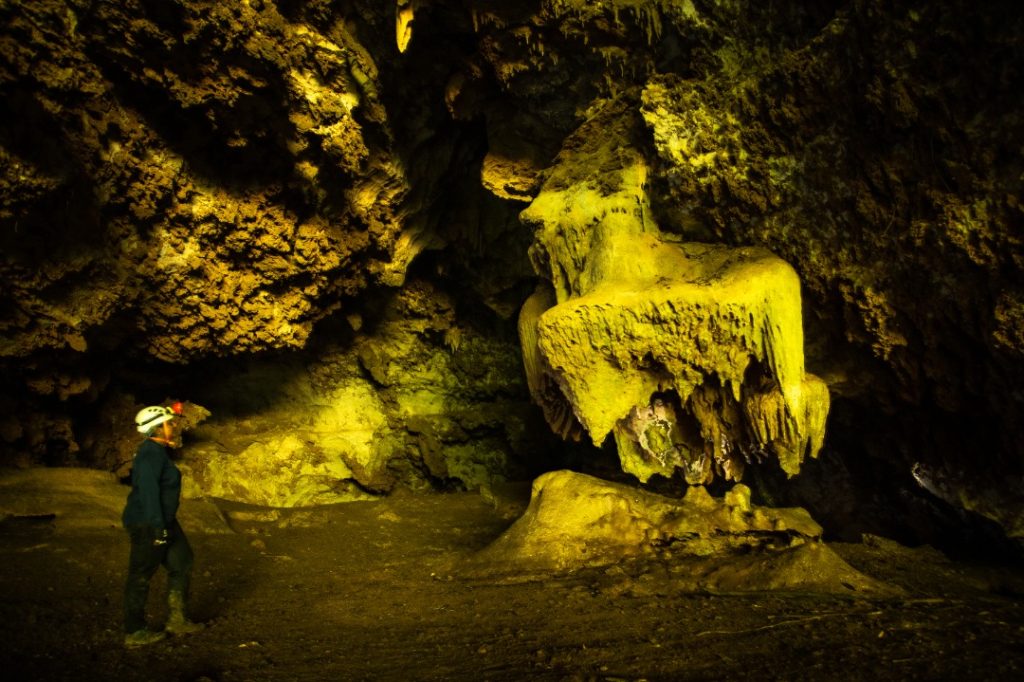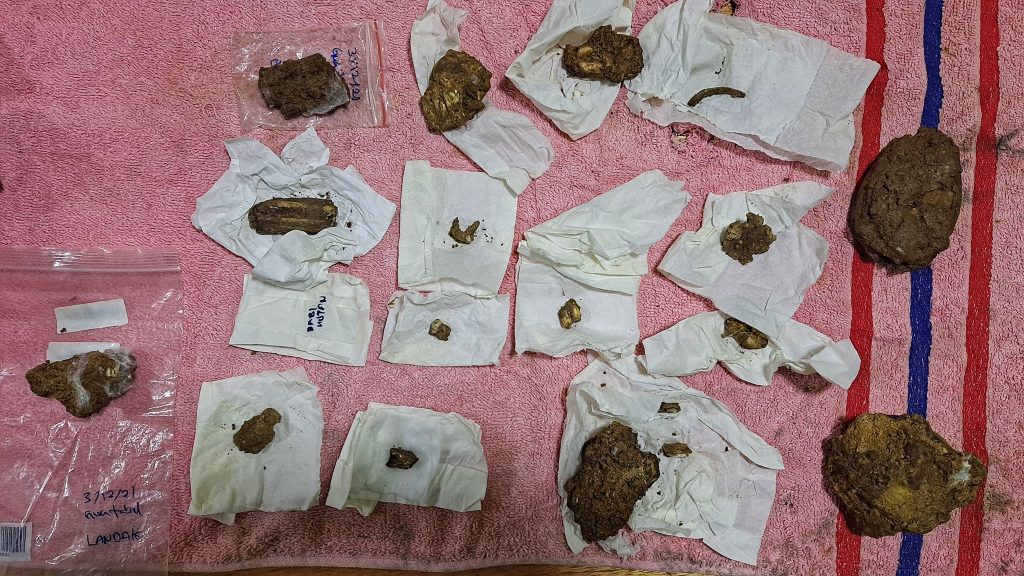The Habitat Foundation Sustainable Tourism Grants are about supporting community-based tourism because it also strengthens conservation. HUGS Project received a grant in 2021 to organise specialised workshops for local cave guides from the remarkable limestone landscape of Merapoh, Pahang.

After months of movement restriction control throughout Malaysia, we have finally managed to make a trip to visit the caves in Merapoh in December to understand and support the work of our grantee, Laili Basir, who is working alongside with the local people to safeguard our limestone caves in Merapoh and its vicinity. The local people here have long served as the guardians of the caves. With the support of this grant, we hope to better equipped them with the best practices in cave conservation and paleontology to be cave guides and co-researchers to experts from the Paleontological Society of Malaysia.
This training was conducted by Laili Basir and our local zoo-archaeologist expert from University Malaya, Lim Tze Tshen. The guides were briefed with basic geological and palaeontology knowledge before conducting work at the field sites. They were brought to a few unexplored caves in Merapoh to study the quaternary mammal’s fossils and to practice extracting fossils. The 2-day expedition has yielded an impressive array of wildlife fossils from hedgehog, leopard cat, muntjac to serow, gaur, rhinoceros, elephant and many more. One of the most exciting finding was a fossilized tooth of Orang Utan, as it can only be found in Borneo today.












These archeological findings within such a short span of time show how little knowledge we have on the remarkable caves in Malaysia which are not just a time capsule but also evidences of how humans and animals have adapted to the past environment and prehistoric ecological changes such as climatic changes and sea level changes. These geologic archieves could help in the prediction of future climatic change and help us to improve our ability to predict what lies ahead.




With so much more yet unknown to us, these caves must be preserved and continually protected from unsustainable development and human activities that could bring about any damage to the caves. Through supporting community-based ecotourism, these caves with its own unique ecosystem and wildlife can continue to be preserved while the ecosystem services provided by the caves will also safeguard the livelihoods of the local people.




